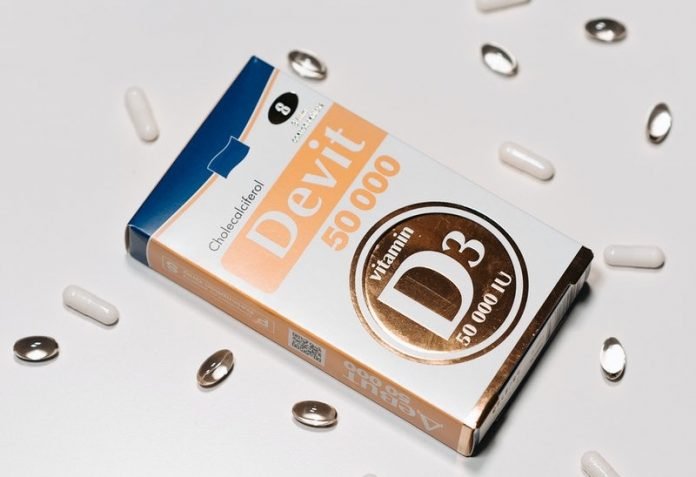
Autoimmune diseases (AD) such as rheumatoid arthritis, polymyalgia rheumatica, autoimmune thyroid disease and psoriasis, are a leading causes of morbidity and mortality as people age.
Few effective treatments are available for AD, but some preclinical studies have hinted that supplements, including vitamin D and omega-3 (or n-3) fatty acids, may have beneficial effects.
In a new study from Brigham and Women’s Hospital, researchers evaluated whether taking vitamin D and/or omega fatty acid supplements could affect rates of AD.
They found that people who took vitamin D, or vitamin D and omega-3 fatty acids had a much lower rate of AD than people who took a placebo.
In the study, the team used data from a big research study of 25,871 men (age 50 and older) and women (age 55 and older) across the U.S.
The research was conducted to see whether taking daily dietary supplements of vitamin D3 (2000 IU) or omega-3 fatty acids (Omacor fish oil, 1 gram) could reduce the risk for developing cancer, heart disease and stroke in people who do not have a prior history of these illnesses.
Participants were randomized to receive either vitamin D with an omega-3 fatty acid supplement; vitamin D with a placebo; omega-3 fatty acid with a placebo; or placebo only.
The team found in patients who received vitamin D, 123 participants in the treatment group and 155 in the placebo group were diagnosed with confirmed AD (22% reduction).
Among those who received omega-3, confirmed AD occurred in 130 participants in the treatment group and 148 in the placebo group.
Supplementation with omega-3 fatty acids alone did not strongly lower the incidence of AD, but the study did find evidence of an increased effect after a longer duration of supplementation.
This is the first direct evidence we have that daily supplementation may reduce AD incidence, and what looks like a more pronounced effect after two years of supplementation for vitamin D.
The team suggests women age 55 years and older and men 50 years and older take vitamin D 2000 IU a day and marine omega-3 fatty acids (fish oil), 1000 mg a day to prevent autoimmune diseases.
If you care about supplements, please read studies about vitamin D that could help reduce inflammation, and vitamin K that could lower your heart disease risk by a third.
For more information about health, please see recent studies about vitamin D can be cheap treatments for COVID-19, and results showing that vitamins and minerals aren’t risk-free. Here are 6 ways they can cause harm.
The study is published in BMJ. One author of the study is Karen Costenbader, MD, MPH.
Copyright © 2022 Knowridge Science Report. All rights reserved.



